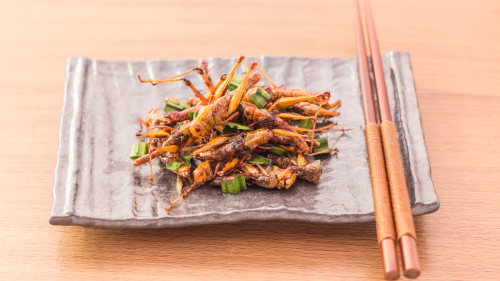Turkey or tofu for Christmas?
15 December 2017
It’s that time of year again. Families gathering around dinner tables filled with food, delicious food. For most Europeans, meat still dominates the menu. But things are starting to shift, an ING report has revealed.

The protein shift: will Europeans change their diet? (PDF 7 MB) – a research report from the ING Economics Department takes a deep dive into the protein consumption habits of 13,000 Europeans.
There are good reasons to start serving other protein sources than meat, and not just for Christmas.
The report mentions three major concerns: the environment, negative health effects and animal welfare. With demand rising quickly, the pressure on the global food system increases.
Are we ready to change?
Are Europeans willing to make the change and increasingly opt for plant-based meat, pulses, nuts, mushrooms and other alternatives? Yes, the report says, but change will not happen overnight.
Currently, dairy, meat, fish and eggs still play a major role in European diets. Animal-based food products are our main source of protein, which is one the most important building blocks of our diet. According to the report, 74 percent of Europeans eat meat regularly, several times a week.
But things are starting to change, says author of the report Thijs Geijer, a senior economist at ING (see box-out).
‘’Consumer expectations point towards a potential decline in meat consumption over the next couple of years. Twenty-seven percent of Europeans expect to cut back their meat consumption, while four-percent expect an increase. As many as 57 percent of European consumers do not believe anything will change,” he said.
By far the majority of respondents (95 percent) state that they would miss one or more animal food products if they were no longer available.
Out of all the products, cheese would be missed the most across Europe, followed by chicken and milk. Only a small number said they wouldn’t miss any animal food product.
Currently, as few as one out of 25 Europeans don’t eat meat at all.
Making the protein shift
Thijs expects diets to change over time and the balance between animal and plant based products to shift.
“Changes in consumer preferences are one of the causes, but new products, marketing and food-related policies will also influence prices and availability in the future,” he said.
The report challenges food companies to come up with meat and dairy substitutes, and sees a development pipeline filled with new generations of protein sources.
These products better be good though. For tofu or courgette burgers to be even considered by consumers, they need to “beat the real deal”. They need to better, cheaper, healthier and more convenient to replace the animal-based products we currently opt for.
To steer consumers and producers in this direction, there is a big role for policy makers. But it’s a puzzle. The report mentions the economic importance of livestock production, limited support for ‘meat-taxes’ and uncertainties on tax-related measures preventing governments from taking more decisive action.
So, enjoy your Christmas dinner. And be prepared for some less-traditional dishes showing up on the menu in the years to come.

